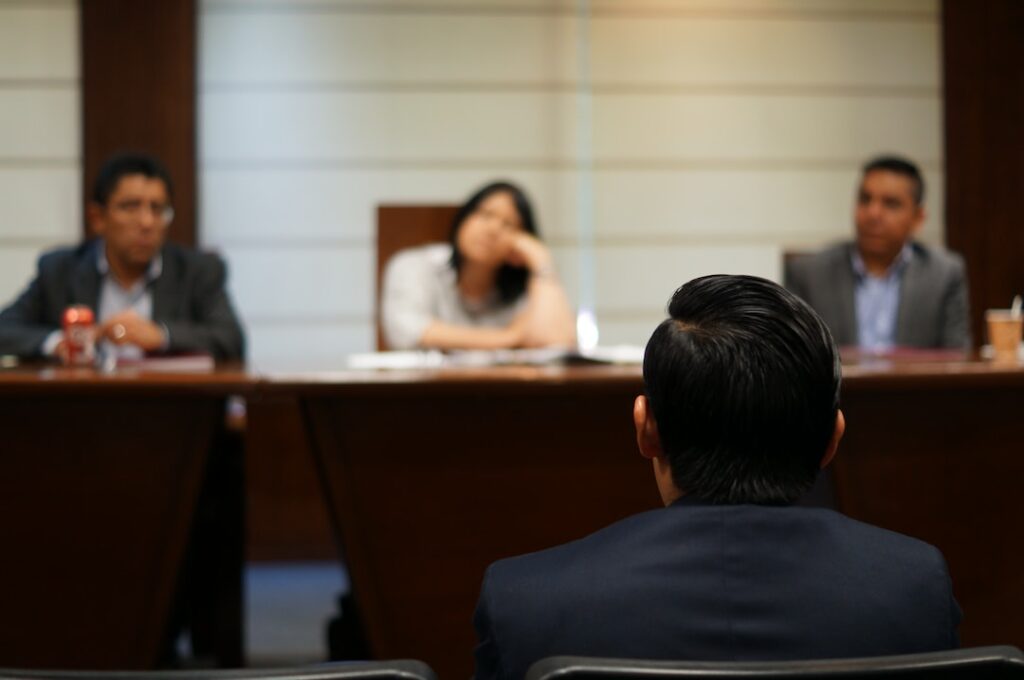Driving While Intoxicated (DWI) charges can have severe repercussions, from hefty fines to jail time, and can also result in a black mark on one’s criminal record. If you or someone you know faces such charges, understanding your defense options can be a significant advantage. A knowledgeable San Antonio DWI attorney, for instance, can guide you through these defenses to ensure the best possible outcome for your case. Here, we will delve deep into the common defenses employed by DWI lawyers to counter DWI allegations.
Challenging the Initial Traffic Stop
One of the primary defenses against a DWI charge is to challenge the legitimacy of the initial traffic stop. Law enforcement officers need a valid reason to stop a driver. This could be for a traffic violation, equipment malfunction, or suspicious driving behavior.
If the defense can prove that the officer did not have a reasonable suspicion to stop the vehicle, then all evidence obtained post that stops (including field sobriety tests and breathalyzer results) might be rendered inadmissible in court.
Disputing Field Sobriety Test Results
Field sobriety tests, like the horizontal gaze nystagmus, walk-and-turn, and one-leg stand, are designed to gauge a driver’s impairment. However, these tests are not foolproof. Many external factors can affect the results, such as:
- Uneven or slippery surfaces
- The type of footwear the driver is wearing
- Medical conditions or physical disabilities
- Adverse weather conditions
- The mental state of the accused, including nervousness or fear
A proficient lawyer can argue that these tests are inherently flawed, casting doubt on the prosecution’s assertion of impairment.
Contesting Breathalyzer and Blood Test Accuracy
The accuracy and calibration of breathalyzer machines often come under scrutiny in DWI cases. Breathalyzers can sometimes produce skewed results due to various reasons like:
- Machine malfunctions
- Improper use by the law enforcement officer
- The presence of substances in the mouth, such as mouthwash or certain medications, that may contain alcohol
- Medical conditions like acid reflux or diabetes can affect readings
Additionally, blood tests, while more accurate than breath tests, are not without their issues. Errors in the handling, storage, or even the drawing of the blood sample can lead to contamination or degradation, thereby producing unreliable results.
An experienced DWI lawyer will demand records of the machine’s calibration and maintenance, or question the procedure followed during the blood draw, to identify any potential anomalies.
Asserting Rising Blood Alcohol Defense
Alcohol does not instantly reach its peak level in the bloodstream post-consumption. Instead, it rises over time before eventually beginning to decline. The “rising blood alcohol defense” is centered around the argument that at the time of driving, the accused’s blood alcohol concentration (BAC) was below the legal limit and only rose to an illegal level by the time the test was administered.
For instance, consider a scenario where an individual is pulled over immediately after leaving a bar and is only tested an hour later. Their BAC could have been below the legal limit when driving but might have risen by the time they were tested. This defense essentially argues that the BAC readings do not accurately represent the driver’s state at the time they were operating the vehicle.

Introducing Alternative Explanations for Symptoms
Often, the prosecution will present symptoms like slurred speech, red eyes, or poor motor skills as evidence of intoxication. A skilled defense attorney will introduce alternative explanations for these symptoms. Allergies, fatigue, emotional distress, or even the side effects of legally prescribed medications can all mimic signs of intoxication. By providing alternative reasons, the defense can create reasonable doubt regarding the driver’s alleged impairment.
Protecting Constitutional Rights
Every individual has constitutional rights, and this does not change when faced with DWI charges. Some potential defenses in this area include:
- Arguing that the officer did not read the accused their Miranda rights
- Contending that the accused was detained without being told the reason
- Highlighting any unlawful search and seizure by the law enforcement officers
Any evidence procured in violation of the accused’s constitutional rights can be ruled inadmissible, severely weakening the prosecution’s case.
Evaluating the Qualification of the Arresting Officer
Another angle from which DWI cases can be challenged involves the qualifications and training of the law enforcement officer who made the arrest. Not every officer has specialized training in DWI detection or the administration of sobriety tests. If the defense can demonstrate that the arresting officer lacked proper training or did not adhere to the required procedures, the evidence collected during the arrest could be deemed unreliable.
For instance, certain sobriety tests need to be administered precisely as per the guidelines. If the officer deviates from these guidelines, the results can be challenged. An experienced DWI lawyer can request the training records of the arresting officer to scrutinize their qualifications and the validity of their actions during the arrest.
Exploring Medical and Dietary Defense
While it might sound uncommon, certain medical conditions and diets can inadvertently lead to elevated BAC readings. Conditions like auto-brewery syndrome, where an individual’s body produces alcohol in the gut, can result in a high BAC reading even if no alcohol has been consumed.
Similarly, those on specific diets, such as low-carb or ketogenic diets, might produce isopropyl alcohol, which some breathalyzer models could mistake for ethyl alcohol, leading to falsely elevated readings. By providing medical records or expert testimony, the defense can highlight these factors, potentially discrediting the BAC results.
Establishing an Inadequate Observation Period
Many jurisdictions mandate that law enforcement observe a suspect for a specific duration, typically 15 to 20 minutes, before administering a breathalyzer test. This observation ensures that the suspect does not eat, drink, burp, vomit, or do anything else that might affect the test results.
If this observation period is not adequately followed and the defense can prove it, the breath test results can be deemed unreliable. Surveillance footage or contradicting statements from law enforcement personnel can serve as evidence to back this defense.
Highlighting Improper Storage and Handling of Samples
Once samples, especially blood samples, are taken for analysis, proper handling and storage are crucial for their integrity. Improper storage conditions or prolonged storage can lead to fermentation, potentially raising the alcohol content in the sample.
If the chain of custody of the sample can be challenged or if there are gaps in the documentation showing how the sample was handled and stored, the results of the test can be contested. Often, this requires expert testimony or forensic evidence to illustrate the potential degradation of the sample due to mishandling.
Proving Involuntary Intoxication
Though a rarer defense, involuntary intoxication is grounded in the idea that the accused did not willingly consume alcohol or drugs. This could be a result of someone spiking the accused’s drink or an unexpected reaction from a legitimately consumed medication.
To successfully leverage this defense, the accused would generally need to provide witnesses to testify on their behalf, surveillance footage, or medical evidence to support their claims. This defense doesn’t deny intoxication; instead, it argues the lack of intent or awareness on the part of the accused.
Conclusion: The Role of a Skilled Defense
Facing a DWI charge can be an overwhelming experience, and the consequences of a conviction are far-reaching. However, as illustrated, there are multiple defense strategies that can be employed to challenge such charges. It is crucial to remember that each DWI case is unique, and the defenses applied must be tailored to fit the specific circumstances of the incident.
Collaborating with a knowledgeable DWI lawyer who understands the intricacies of DWI laws can significantly enhance your chances of a favorable outcome. If you ever find yourself in such a situation, knowing these defense angles can empower you to make informed decisions and work proactively with your legal counsel to safeguard your rights and future.


